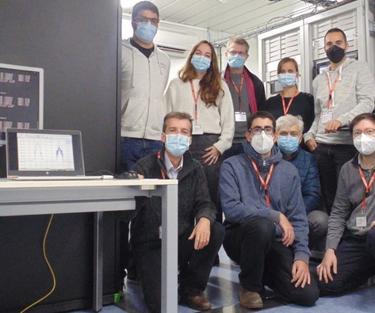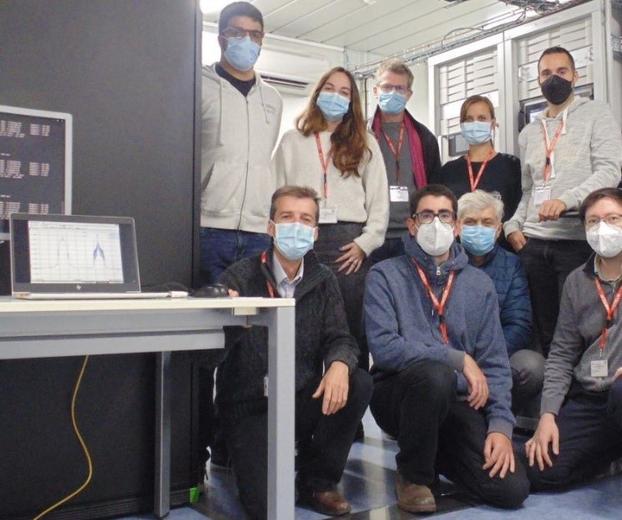Airbus, with its key partners Indra and the Universitat Autònoma de Barcelona/IEEC, and the EGNOS V3 stakeholders the European Union Agency for the Space Programme (EUSPA), the European Space Agency (ESA) and Eutelsat, have successfully completed the first test signal broadcast of the European Satellite-Based Augmentation System (SBAS) EGNOS V3 respecting the Single Frequency L1 and Dual Frequency Multi Constellation L5 formats.
Version V3 of EGNOS, the European Union SBAS, will improve GPS and Galileo performances, to provide satellite-positioning services to the most safety-critical applications such as aircraft navigation. This new generation of EGNOS, currently under development by Airbus, will operate on a multi-frequency (L1/L5, E1/E5), multi-constellation basis (GPS, Galileo) embedding security protection against cyber-attacks.
The EGNOS V3 test signal campaign involved the new version of EGNOS Navigation Land Earth Station (NLES) developed by Indra as well as the Eutelsat E5WB’s dual-frequency SBAS payload developed by Airbus. This first NLES to E5WB integration aimed to verify an EGNOS V3 key algorithm ensuring each signal is rightly steered at the satellite output by adapting in real time the uplink signal from the ground. This important milestone secures the critical design of EGNOS V3 NLES before the final implementation and its full factory qualification.
“The successful broadcast of the EGNOS V3 test signal is a key event in the life of the program,” said Silvio Sandrone, Head of Navigation Programs at Airbus. “Together with other ongoing field experiments, this “hello world” of EGNOS V3 lays the foundation for the deployment of the new generation of EGNOS. The program and the system are now entering into reality on their journey to enable continuous and improved Safety of Life services across the European Union and beyond.”
Acknowledgements
EGNOS is a component of the European Union Space Programme designed to improve positioning service of the Global Positioning System and of Galileo for Safety of Life users. It is managed in the frame of the partnership agreement established between the European Commission’s Directorate-General for Defence, Industry and Space (DG-DEFIS), the European Union Agency for the Space Programme (EUSPA) and the European Space Agency (ESA).
The views expressed in this Press Release can in no way be taken to reflect the opinion of the European Union, of EUSPA and/or of ESA.
You can find more info about these organizations under:
DG-DEFIS: https://ec.europa.eu/defence-industry-space/index_en
EuSPA : https://www.euspa.europa.eu/
ESA: http://www.esa.int


